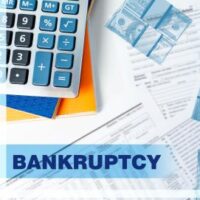Can My Business Bankruptcy Be Denied?

Filing for bankruptcy can help save a struggling business or it can help wrap up loose ends and eliminate debts for one that is closing. In either case, it can provide much needed relief and the fresh start you need, but a common question we hear from clients concerns bankruptcy discharge and whether a business bankruptcy can be denied? Our experienced New York business bankruptcy attorneys explain the process and situations in which problems may arise.
What Is A Bankruptcy Discharge?
Bankruptcy can put an immediate stop to creditor harassment, preventing actions such as repossessions, liens, and other legal judgments. It eliminates certain unsecured debts, such as credit card balances and past due utility bills, and lets you negotiate payments on leases, contracts, and secured debts.
A bankruptcy discharge is a permanent court order resolving your case. The timing of your discharge will depend on the type of bankruptcy you file:
- Chapter 7: Referred to as a liquidation of assets, a chapter 7 bankruptcy is typically used to eliminate unsecured business and personal debts. Discharge will occur after you attend a meeting with creditors (341 meeting), during which they have the opportunity to dispute your bankruptcy filing. Provided no complaints are filed, your bankruptcy can be discharged in as little as two months.
- Chapter 11: Referred to as a reorganization, this allows you to eliminate certain types of unsecured debts while renegotiating payments on others. Your new payment plan may last anywhere from three to five years. Once all payments are made, your bankruptcy can be officially discharged.
When Can A Bankruptcy Discharge Be Denied?
The U.S. Bankruptcy Code details the rules and regulations regarding business bankruptcy and the conditions under which debts can be discharged. While it is not common, there are circumstances under which your bankruptcy discharge can be denied or even revoked after being granted. These include:
- You failed to provide all relevant and required information in your bankruptcy petition;
- You ran up a considerable amount of debt within 90 days of filing your bankruptcy petition;
- Your bankruptcy includes excessive amounts of luxury items or goods, unrelated to your business;
- You made preferential payments to certain credits or transferred assets to prevent them from being included in bankruptcy proceedings
Preferential payments and transferring assets prior to filing are not only valid reasons to deny or revoke your discharge, but are also considered a type of bankruptcy fraud. Other examples include providing misleading information on your bankruptcy petition and filing bankruptcy repeatedly as a way of getting out of contracts or to avoid paying your debts. In this type of situation, in addition to denial of your discharge, you could also face criminal charges.
Let Us Help You Today
To prevent potential problems in your business bankruptcy petition, get the Law Office of Harry D. Lewis on your side. Find out how our New York City business bankruptcy attorneys can help in your case and call or contact our office online to request a free consultation today.
